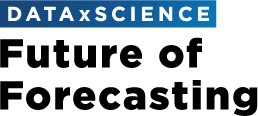12:00–12:05pm
Welcome
Scott McDonald, Ph.D. – President & CEO, ARF
How Did the 2020 Polls Fare Compare to 2016?
12:05–12:20pm
What Did Pollsters Learn From the 2020 Election Polls?
Every election raises scrutiny of pre-election polls — and this one more than most, with the intense interest, a pandemic that changed how many would vote and expectations of poll precision. Hear a quick (very personal) review of some methodological and presentation changes, and a reaction to how national polls are presented and reported.
Kathy Frankovic – Consultant, YouGov America, Inc.
12:20–12:35pm
There Were Always Mixed Signals
A multi-input approach to forecast and understand uncertainty. Single source forecast (polls) are always a tricky business. Properly seeking the analytic narrative with a multiple indicator approach is key.
Cliff Young– President, Public Affairs, Ipsos
12:35–12:50pm
In Defense of Polling
Post-election, leading pollsters face these questions: are the models off, why do some polls capture national sentiment but miss on some states and is the rhetoric about polls impacting who responds? Lurking is a larger question: is polling even worth it? Many argue that we cannot function as a democracy without an independent source of opinion. How can we fix polling?
David Dutwin – SVP, Strategic Initiatives, NORC at the University of Chicago
Interviewer: Scott McDonald, Ph.D. – President & CEO, ARF
12:50–1:05pm
Insights Into the Path to the 2020 Presidential Election
It has been commonly assumed that the 2020 election would be one of the most consequential in American history. Coupled with an extraordinary year, there were a variety of events, activities, data points and signals, that provided clues to where it was all going. We’ll look at some of these items, consider their impact, and see how they help tell the story. Hint: It’s not just about polls.
Robin Garfield – EVP, Research & Scheduling, CNN
Managing Stochastic Shocks to Forecasting Models
1:05–1:20pm
COVID-19 Forecast
In mid-March at the first ARF Town Hall, with less than 200 COVID deaths, Rex Briggs forecasted that we would end the year with 294,000 deaths based on a 15% infection rate and 0.6% infection fatality rate. This has proven to be among the most accurate early forecasts for COVID-19. Rex will explain how the key is identifying a few critical high level parameters and the underlying drivers that can be accurately measured and tracked. Rex will also share his 2021 forecast update, which predicts a rough Q4 and Q1, with an improving Q2 and an end to the pandemic in Q3.
Rex Briggs – Founder & Executive Chairman, Marketing Evolution, Inc.
1:20–1:35pm
Improving Viewership Projections
Forecasting for data driven linear television audiences lends itself to different challenges compared to forecasting the viewership of demo-based audience targets. In order to address some of these challenges, Discovery implemented an ensemble of traditional time series forecasting and machine learning models that together perform significantly better than their benchmarks. Learn about their human-in-the-loop system.
Diana Saafi – Data Science Lead, Discovery
1:35–1:50pm
Forecasting Outcomes for Optimized Impact In A Time Of Uncertainty
Today’s global uncertainty represents a key moment in business strategy, and as disruption continues to accelerate, scenario planning is becoming even more of a tactical and strategic necessity. Brands can work with and build upon available data and insights to identify key factors to focus on when forecasting, war game scenarios involving investments of competitors and scenario planning across multifaceted business segments.
Mark Wilson – Associate Vice President, Analytic Partners
1:50–2:00pm
Q&A and Closing Remarks
Scott McDonald, Ph.D. – President & CEO, ARF

